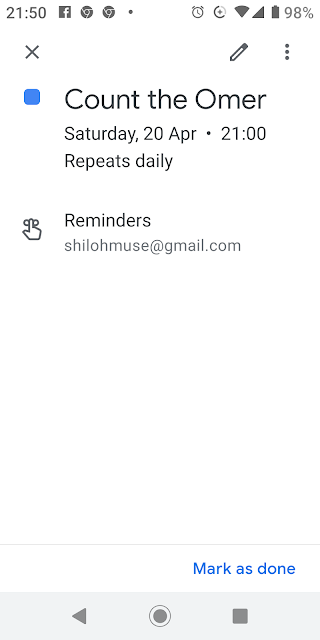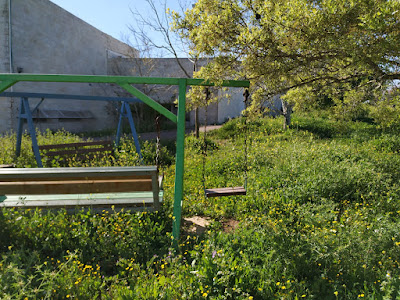 |
| Sidney Spiegelman, Z"L, 1920-2016, United States Navy World War Two |
You could say that in my father's death he did me a favor. He passed away just a few days before Passover, just as I was about to really clean and get the house ready for Pesach. It was also a year I had thought would never happen again. We were to host the Passover Seder for two of our (then) unmarried kids. They had requested a "quiet" Seder "without strange strangers."
I'm a terrible housekeeper; the Pesach cleaning is always very stressful for me. And I had thought that I'd retired from Seder hosting, since our daughter now hosts the big family one every two years, and we've been going to others as guests on the alternate years.
Once I got the news that my father had died, from the complications of "old age," my
halachic, Jewish Law status changed. Since I wasn't going to travel to New York for the funeral, which would only be three days later, also leaving no time for more than a bare minimum
shiva, Jewish ritual mourning period, of less than an hour, my status as a morner began almost immediately.
As a mourner, I was forbidden to clean, cook etc. My children and husband had to make time to take over all responsibilities for Passover and the Seder. All the food we had already bought for the Seder was sent to my married daughter, who suddenly became the expert in preparing Gefilte Fish. I wasn't supposed to even peek into the kitchen to give orders.
 |
My father with his brother,
my Uncle George, who had
predeceased him. |
 |
My father with his brother,
my mother, who had
predeceased him. |
My father was blessed with a long life, even though he wasn't all that happy being the very last of his generation. His brother and sister had both died before him, as did my mother. He missed them all.
During World War Two, my father served in the United States Navy, being a pioneer in the use of radar. He discovered that a lot of his training had been riddled with inaccurate presumptions. A gifted "problem solver," his analysis and solutions were crucial to the success of radar in the Pacific against Japan.
After the war, he found my mother, whom he had first met before going overseas, and married her. When they were first married, they lived in Brooklyn, NY, where they had both been born. When I, their firstborn, was an infant we moved to Bell Park Gardens, Bayside, NY, where my brother and sister were born. In late summer, 1962, we moved to Great Neck, NY. My father worked as an accountant, adding CPA to his qualifications. After starting his career in the State Insurance Fund, he began a private practice
on the side, eventually only working
for himself.
Family, friends and work were my father's life; he had no hobbies.
Later on my father suffered a form of dementia that affected his ability to care for himself, but left him very social and fascinating. At one point, due to my mother's condition, she could no longer care for him, and we brought my father to Israel to live with us. My father enjoyed spending time with his grandchildren, great-grandchildren, niece and other family members. Here in Shiloh, my father made a lot of friends, and we had hoped that my mother would join him in Israel, but it didn't work out. Instead, my sister cleared the house for sale and moved my mother to Arizona, near her. We brought my father to join her.
That's why they both died in Arizona, but they're buried in New York, in the burial plot of Oakland Jewish Center, of which they were among the founders. Both my parents stayed New Yorkers in their minds and hearts. One of the standard questions asked to check dementia is:
"Where do you live?"
My parents would answer "New York," even after being moved to Arizona. That answer to me was not due to dementia. I have no doubt that they were totally accurate. They were just visiting Arizona until they were to be returned to New York, buried among their old friends.
לעילוי נשמתו
אלכסנדר זיסקין בן צבי הירש
בן דוד יוסף
בן אלכסנדר זיסקין
















































